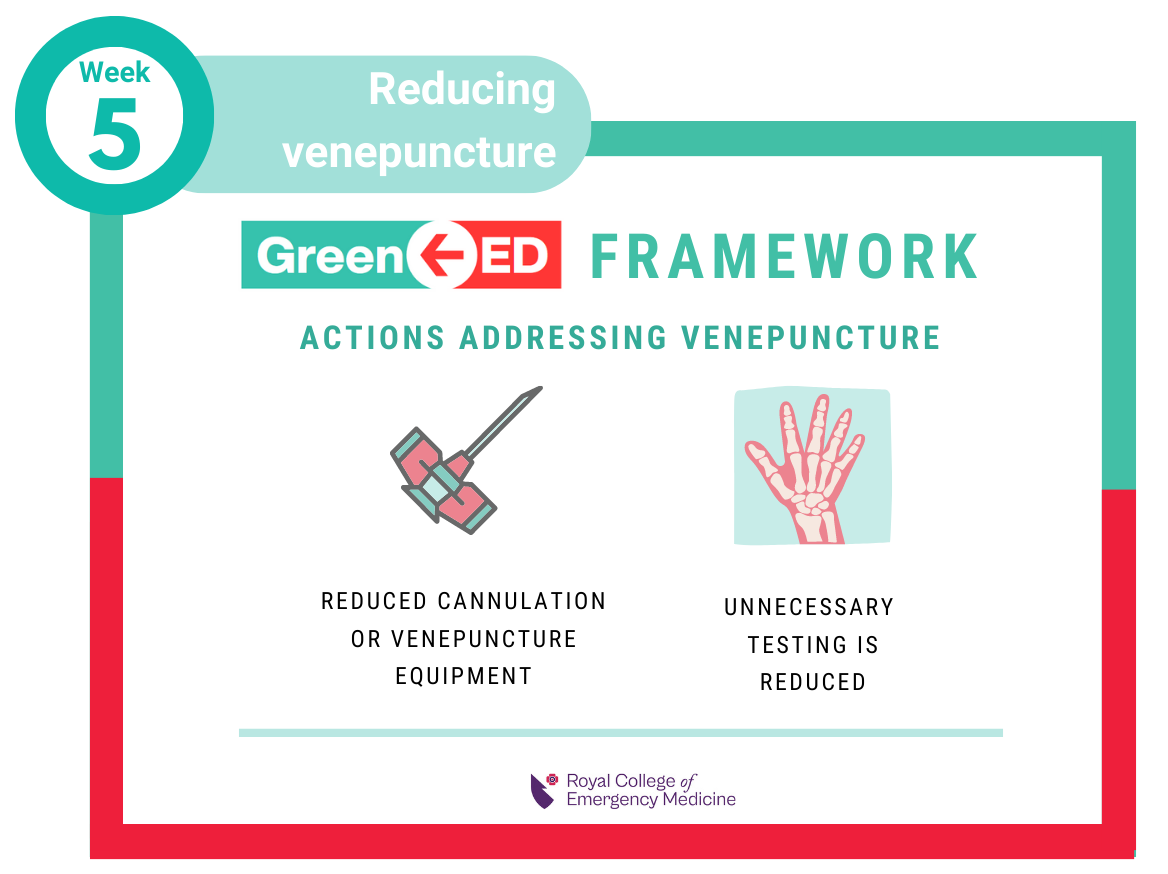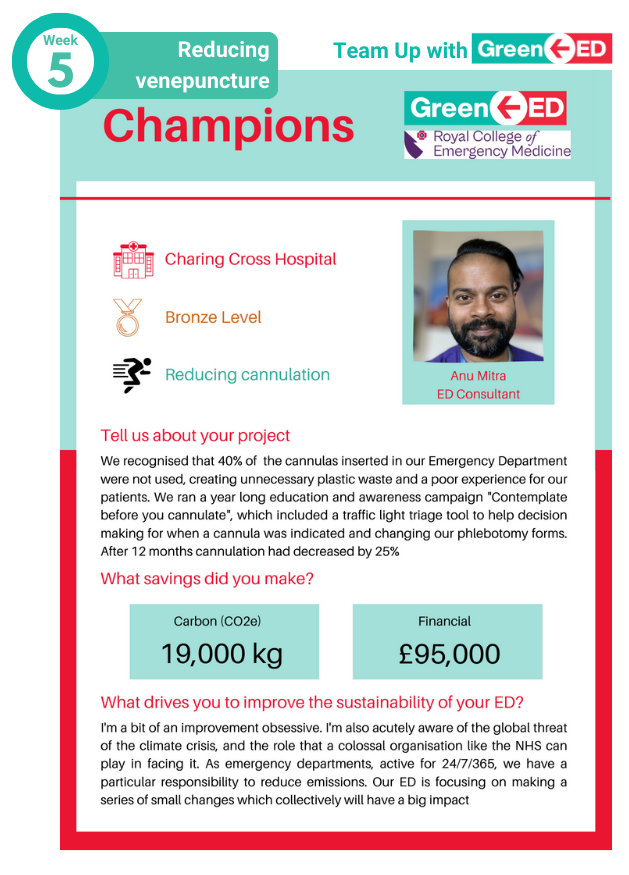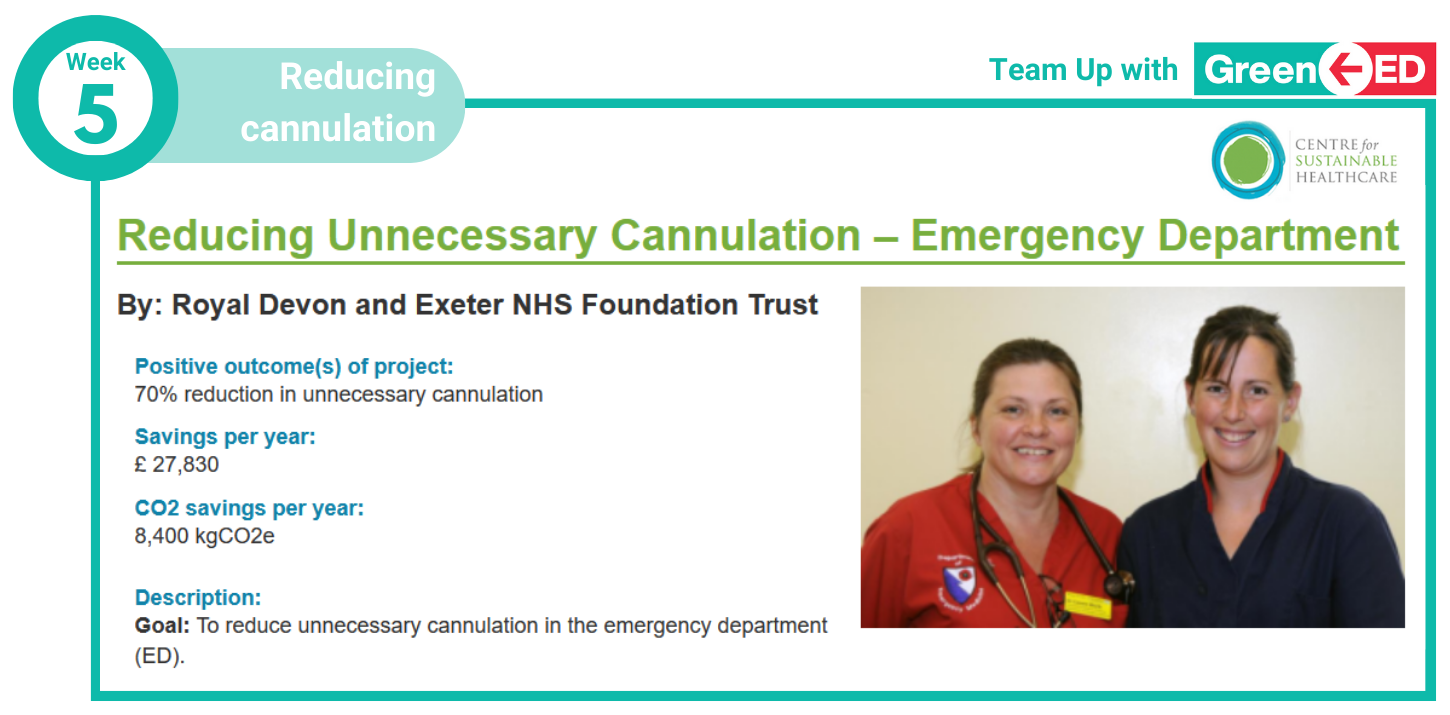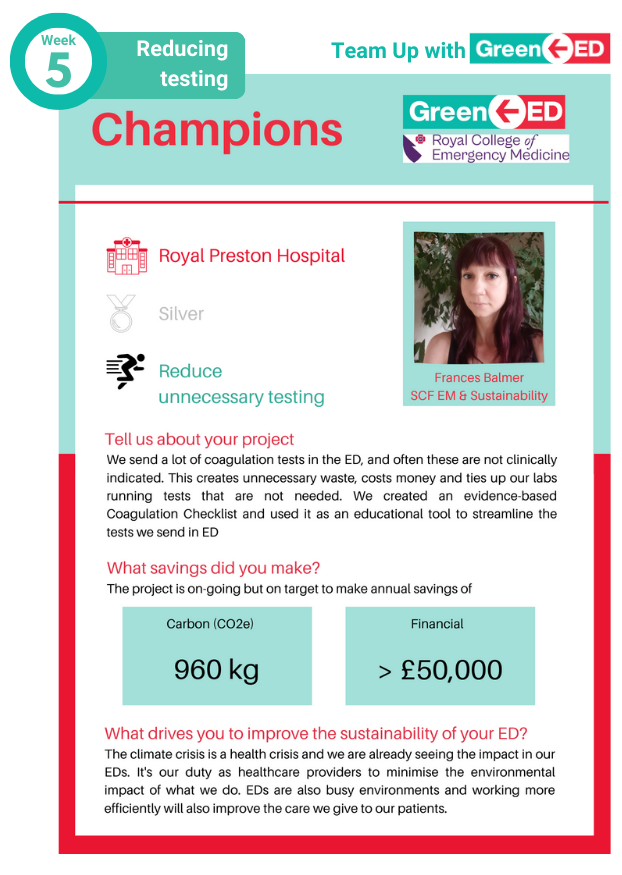Week 5 and we're focusing on venepuncture & blood tests. We can make a significant impact by reducing unnecessary procedures.
You can see how the #GreenED framework addresses this in full at https://greened.rcem.ac.uk

Reducing the equipment we use
Prepared packs for cannulation can improve efficiency BUT if unnecessary items are included they create needless waste Does your ED use prepared cannulation packs? Is everything within those packs necessary? Is a bionector routinely connected?
Reducing unnecessary cannulation
More and more hospitals are running QIPs to reduce the number of cannulas inserted. For example the "Contemplate before you Cannulate" project at Imperial Hospital reduced unnecessary cannulation in the Emergency Department by 25%, saving £95,000 and 19,000kg CO2e per year. Not to mention the improved patient experience.

A similar project in the Emergency Department at Royal Devon and Exeter hospitals reduced unnecessary cannulation by 70%, saving £27,830 and 8,400 kg CO2 per year.

Reducing unnecessary blood tests
It is also well recognised that Emergency Departments front-load investigations, resulting in unnecessary testing. A QIP at Royal Preston Hospital reduced coagulation testing by 30% saving nearly £25,000 and 400kg CO2e in 6 months.

Please log in or sign up to comment.